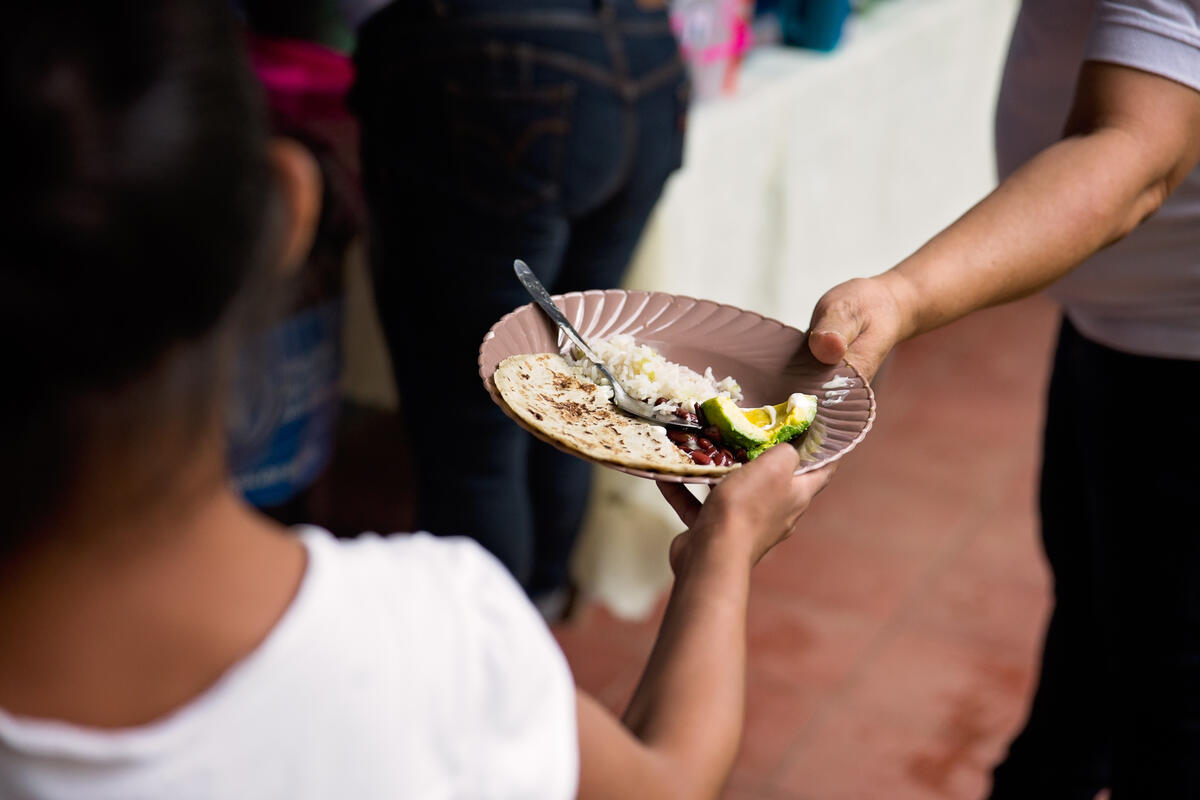
The WFP Centre of Excellence against Hunger in Brazil and the WFP Country Office in Nicaragua facilitated a first meeting between Brazil and Nicaragua about home-grown school feeding. The meeting is part of the Centre’s work to promote technical exchanges between Brazil and other countries with the aim of improving school meals programmes across the world and mainly focused on the Brazilian experience with purchases from local smallholder farmers, programme governance and legal framework.
“Cooperation between WFP and Nicaragua is not new and has its roots in the 90s, when WFP supported school feeding in Nicaragua and helped launch the school feeding programme”, said Daniel Balaban, Director of the WFP Centre of Excellence in his remarks. WFP is now supporting the Ministry of Education with the implementation of the Comprehensive School Nutrition Program (PINE) and, since this year, WFP has been supporting the Ministry of Education of Nicaragua (MINED) in the design of a local home-grown school feeding model.
Nicaragua’s school feeding programme is the largest social protection programme in the country and school meals has very important added value, both for children and for society. “Studies show that if we invest USD 1 in each child, it can turn into USD 9 for the country and we want to work on that here in Nicaragua,” said Giorgia Testolin, WFP’s country representative. “We want to learn from Brazil’s great programme, one of the most important in the world, to see how we can connect schools with smallholder farmers more efficiently and support the development of small producers in the country,” she added.
Sineide Neres, from the Brazilian Fund for Education Development, presented an overview of the Brazilian National School Feeding Programme (PNAE), its history and evolution of local purchases from smallholder farmers and the legal framework behind it. She also presented data on programme funding and costs per meal and monitoring tools. “The Programme has changed a lot over the years. It is one of the oldest Brazilian social protection programmes and one of the largest school meals programmes in the world”, she added. PNAE today offers daily meals to over 40 million students, including children and adults.
School feeding in Nicaragua
The school meals programme in Nicaragua is universal and serves even the most isolated communities. Food distribution, however, is centralized. “We currently do central distribution of food and it takes about 20 days for food to arrive to the most remote schools, in some places by boat,” said María Jose Bonilla, Director of Nicaragua’s Integral School Nutrition Programme. “We want to offer fresher products. Currently parents are the ones who add other products in this basic basket such as fruits, vegetables and greens,” she added. The country is also creating school gardens and making a coordinated effort for greater outreach and involvement of parents and teachers.
WFP has supported school feeding in Nicaragua since 1993, when it first helped launch the programme. In 2007, school feeding was handed over to the Government and since then the National School Feeding Program evolved to become the largest social protection program in the country, with universal coverage, reaching 1.2 million children in public schools across the entire national territory. WFP supports the implementation of the programme by providing the full food basket of rice, beans, vegetable oil, and flour or maize for 182,000 children in some of the most remote and poorest areas of the country, mostly inhabited by indigenous populations.
WFP’s support represents 15% of the entire national programme. In addition, WFP provides technical cooperation and capacity building for the Ministry of Education in diverse areas such as infrastructure rehabilitation of school kitchens, promotion of healthy eating habits for school children, translation of school feeding materials into indigenous languages.
The questions and answers session focused on themes such as how Brazil identified smallholder farmers to start being suppliers, the items that would be added to the school menus, the role of families in preparing school meals, and characteristics of school kitchens. This meeting is part of the Virtual Exchanges initiative, developed in partnership between the WFP Centre of Excellence and the Brazilian Government, through the Brazilian Cooperation Agency (ABC) and the Ministry of Education. Learn more about this initiative here.




